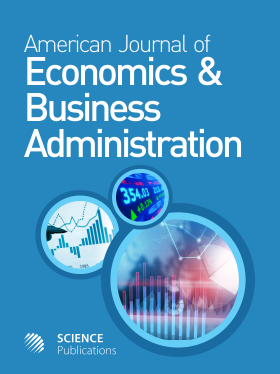Trade Promotions and Suppliers' Market Power
- 1 College of Business and Economics, United States
Abstract
Problem statement: Trade promotions provided to retailers from suppliers are not well understood and have not been consistently reported by manufacturers. Research about the phenomenon has consequently been limited and neither the trade nor government agencies fully understand the phenomenon and its implications. One implication is that some trade promotions (or trade allowances as they are also known) can pose an ethical dilemma in terms of restricting competition to the disadvantage of smaller businesses. Approach: This research takes advantage of a one-time release of data at the individual firm level which includes firm specific information on trade promotions, which includes slotting fees, provided by manufacturers for placement in retail stores as well as advertising and promotion support for the retailer. Firm level specific data gives the researcher a method of analyzing the use of market power exercised by the manufacturer to influence retail behavior. Further, the analysis of trade promotion practices and market power give an indication of possible uncompetitive conditions created by manufacturers with high potential market power. Results: Findings indicate that firms with high potential market power, based on assets, provide more trade promotions. Firms with high profits derived from high gross margins, also exercise high market power. Both of these findings, in terms of potential market power as well as exercised market power, lend credibility to the argument that high market power firms pose an uncompetitive environment for small suppliers. Conclusion/Recommendations: The Federal Trade Commission (FTC), which previously reviewed this issue, needs to revisit the matter in terms of the creation of the uncompetitive environment that appears to be created through high market power firms. Further, research that considers both the retail and manufacturers’ firm-level data on a broad spectrum should be examined to better understand the situation.
DOI: https://doi.org/10.3844/ajebasp.2011.460.472

- 4,045 Views
- 3,838 Downloads
- 1 Citations
Download
Keywords
- Trade promotion
- slotting fee
- uncompetitive environment
- restrict competition
- Federal Trade Commission (FTC)
- firm-level data
- market power
- potential market
